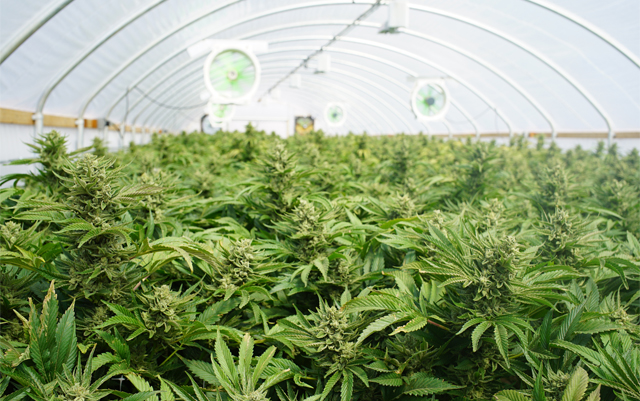You’ve almost definitely heard of delta 9 THC, commonly referred to as just THC. However, there’s a good chance that you haven’t heard of delta 8 THC.
Delta 9 THC is the chemical compound in the marijuana plant that is responsible for the infamous “marijuana high.” But while all sorts of fears and complications are related to this high, delta 8 THC might be the perfect solution for a lot of people.
Delta 8 THC has been lauded for having all of the benefits that are associated with traditional THC but it doesn’t come with any of the overwhelming effects and paranoia. But how is this possible? And is delta 8 THC legal?
There are a lot of questions that you might have about delta 8 THC. And luckily for you, we’ve got the answers that you are looking for. So keep on reading and we will walk you through everything that you will want to know.
What Is the Endocannabinoid System?
Before we can go over what delta 8 THC is and what it can do for you, we first need to explain what the endocannabinoid system (ECS) is and how it works. By understanding the ECS and how it affects our bodies, we’ll be able to more easily wrap our heads around how the cannabis plant interacts with this system and affects our minds and bodies.
The endocannabinoid system is a complex and intricate system. It has influence over a variety of aspects within the human body. Researchers first discovered this system about thirty years ago when they were attempting to better understand how THC affects the body.
While much has been discovered and written about the ECS and what it does, there is still a lot that we don’t know. With that said, there are some processes and functions that we do know the ECS is able to manipulate. Some of those processes and functions include:
- reproduction and fertility
- appetite
- mood
- sleep
- memory
The ECS exists and functions in your body, whether or not you use cannabis.
How Does the Endocannabinoid System Work?
Your ECS is made up of receptors, enzymes, and endocannabinoids. The word endocannabinoids is short for endogenous cannabinoids. An endogenous cannabinoid acts in a similar manner to a cannabinoid, the main difference is that endocannabinoids are naturally produced in the human body while cannabinoids come from the cannabis Sativa plant.
The two main types of endocannabinoids that we know of so far are 2-arachidonoylglycerol (2-AG) and Anandamide (AEA). These are chemical compounds that work to keep internal processes operating properly. Your body makes these compounds as it needs them.
Throughout the body, you will find endocannabinoid receptors. Endocannabinoids need to bind to endocannabinoid receptors. When this occurs, a signal is sent to the ECS that a certain action needs to be taken.
The two main endocannabinoid receptors are CB1 and CB2.
Your CB1 receptors are mainly located in the CNS (central nervous system). CB2 receptors, on the other hand, can mainly be found in the peripheral nervous system in immune cells. This system is mainly found in the extremities and limbs.
An endocannabinoid can bind to either ECS receptor. Depending on which endocannabinoid binds to which receptor, a certain action will be taken.
After an endocannabinoid performs its functions, it then needs to be broken down. This is where the enzymes come into play.
The enzyme’s job is to break down the endocannabinoid once it is no longer needed.
There are two key enzymes that are responsible for breaking down endocannabinoids. First, there is the fatty acid amide hydrolase which breaks down AEA. There is also monoacylglycerol acid lipase, which is an enzyme that is in charge of breaking down 2-AG.
What Are the Functions of the Endocannabinoid System?
Scientists and researchers are still trying to figure just how the endocannabinoid system works and all of the areas that it affects. However, there are several functions and processes that we do know the ECS is able to manipulate.
These processes and functions include:
- skin and nerve function
- reproductive system function
- bone remodeling and growth
- muscle formation
- motor control
- mood
- metabolism
- digestion and appetite
- stress
- liver function
- cardiovascular system function
- sleep
- learning and memory
- inflammation and other immune system responses
- chronic pain
Each of these functions and processes is related to the process of homeostasis. What is homeostasis?
Homeostasis is the process of your body attempting to achieve an internal balance. Scientists are currently under the assumption that the point of the ECS is to bring homeostasis to the human body.
What Is Delta 9 THC?
By now, you are probably ready to just learn about delta 8 THC. However, without first getting context by understanding delta 9 THC, learning about delta 8 THC won’t be very useful.
Delta 9 THC, also known as Δ9-tetrahydrocannabinol, is the most prominent cannabinoid present in the cannabis plant. It’s a chemical compound that acts a lot like the endocannabinoid chemicals in the human body. However, there are some slight but drastic differences between cannabinoids and endocannabinoids.
The reason why you are able to get medicinal and psychological effects when you ingest cannabinoids is that there are cannabinoids that interact with the ECS.
Delta 9 THC has the ability to get you high because it interacts with the system’s CB1 receptors in the brain.
But endocannabinoids also interact with CB1 receptors. So why are we not naturally high all of the time? There are two reasons why this isn’t the case.
First, delta 9 THC interacts with CB1 receptors in a different way compared to endocannabinoids. Also, metabolic enzymes are able to break down endocannabinoids very quickly. These enzymes aren’t as good at breaking down delta 9 THC, so that cannabinoid is able to stay in the system for longer.
The Effects of Delta 9 THC on the Body
When you consume delta 9 THC, the compound is able to stimulate brain cells and lead to the production and release of dopamine. Dopamine is known as the happy chemical and is able to produce euphoric feelings in users.
The cannabinoid is also able to affect how your brain processes new information. This is because it impacts the hippocampus, which is the part of your brain that is in charge of forming new memories.
THC might also change how you think critically. It can even cause hallucinations and delusions in some people.
The effects of THC tend to last for a couple of hours. After about thirty minutes or so from the ingestion of ingestion, the effects should start to kick in.
After the felt high is gone, you still might experience psychomotor impairment. In some instances, the side effects of delta 9 THC can include:
- pain relief
- elation
- sedation
- anxiety
- problems with remembering recent memories
- relaxation
- faster heart rate than normal
Terpenes affect the flavor and scent of marijuana. They can prevent or mitigate the negative effects of delta 9 THC, as well as other cannabinoids that you ingest.
Medicinal Uses
For thousands of years, people have been using the cannabis plant to treat medical conditions. In the United States, a lot of states have legalized marijuana for medical purposes. Some states have even allowed people to use marijuana for recreational uses.
Delta 9 can be synthesized in a lab environment but can also be extracted from the cannabis plant. When THC is made in a lab, it’s used to prevent or treat vomiting and nausea that is caused by things like cancer treatment.
People who have AIDS tend to have suppressed appetites and will use synthesized THC to treat this problem.
What Is Delta 8 THC?
Now that we finally understand the endocannabinoid system and delta 9 THC, we can finally talk about delta 8 THC in a comprehensive manner. Also known as Δ8-tetrahydrocannabinol, delta 8 THC is a cannabinoid that is also produced in the cannabis Sativa plant.
Delta 8 THC is much less prominent than other cannabinoids like delta 9 THC and CBD (cannabidiol). With that said, it is worth knowing that there are hundreds of minor cannabinoids present in the marijuana plant that we are still learning about.
Most of these cannabinoids are present in very small concentrations. This means that a lot of processing and refinement is involved in getting usable amounts of minor cannabinoids.
With that said, delta 8 is also much more shelf-stable than delta 9 THC. So it might be a better option when it comes to using it in prescription drugs.
The biggest difference between delta 8 THC and delta 9 THC has to do with where the location of a particular bond between two atoms that make up each THC molecule takes place.
When it comes to delta 9 THC, there is a double bond on the ninth carbon in the chain, hence the name delta 9 THC. As you might assume, the double bond is on the eight carbon in the chain for delta 8 THC.
It’s assumed that this slight difference is why these cannabinoids are so similar but not identical.
The Effects of Delta 8 THC
Delta 8 THC, like delta 9 THC, will have psychoactive effects for most users. However, it will likely have effects that are much less intense than delta 9 THC. Because of this, a lot of people like to refer to delta 8 THC as “weed light.”
You’ll still get feelings of euphoria from delta 8 THC and your appetite will be stimulated. It can also energize or relax you depending on the terpene and larger cannabinoid profile, just like how it works with delta 9 THC.
You’ll also likely feel high when you take delta 8 THC. The main thing to understand is that you’ll get all of the effects that you get from normal THC but at a lower intensity. Even veteran marijuana users are likely going to feel effects from delta 8 THC.
The desired effects of THC are going to be reduced with delta 8 THC. But the negative effects will also be reduced.
The Legality of Delta 9 THC and Delta 8 THC
In the United States, it can be very confusing to understand the legal standing of marijuana and cannabis. From a federal level, delta 9 THC is illegal. However, a lot of states have legalized the possession of this compound, for either medical or recreational purposes.
Delta 8 THC also used to be illegal federally. However, after President Donald Trump signed the 2018 Farm Bill into law, he made the production of hemp legal in the United States.
Hemp and marijuana are both varieties of the cannabis Sativa plant. The difference between them has to do with how much THC they have. In order for a cannabis plant to be legally considered hemp, it cannot contain more than 0.3 percent THC.
This is why CBD is legal in the United States. And delta 8 THC made from hemp plants is also technically legal in the United States now. Of course, delta 8 THC can still be made illegal in states and local jurisdictions.
If you’d like to know more about delta 8 THC and how it can help you, then you should know that we have your questions answered here.
The Importance of Knowing What Delta 8 THC Can Do for You?
Hopefully, after reading the above article, you now have a better idea of what delta 8 THC can do for you. As we can see, delta 8 THC can be a great help to people who are uncomfortable consuming traditional delta 9 THC. Just make sure that you buy high-quality delta 8 THC products from reputable sources.
Are you looking for other helpful and interesting articles like this one? If so, then make sure to check out the rest of our site today for more!
Disclaimer: This article is intended for information and entertainment purposes only and is not intended to reflect the specific views of the publication.






